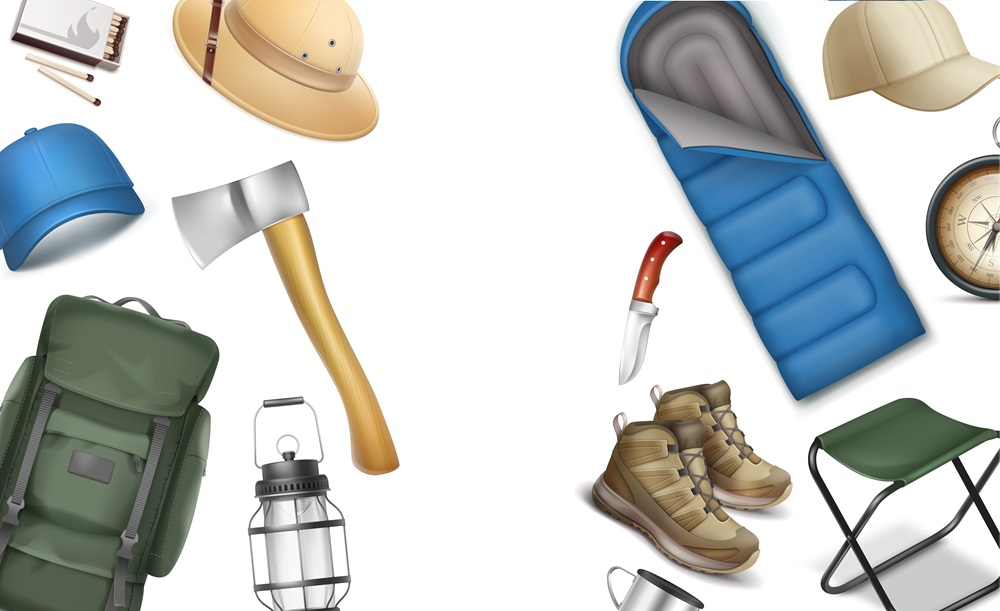You’re itching for a camping trip and want gear that won’t break the bank. Searching for discount camping gear online sounds smart—until you stumble into a scam.
Fake sites, too-good-to-be-true prices, and sketchy sellers are everywhere. So, how do you snag a bargain without getting burned? Let’s break it down.
Why Scams Love Camping Shoppers Like You
Camping gear isn’t cheap—tents, sleeping bags, and stoves add up fast. You’re not alone in wanting a deal. Scammers know this and set traps with crazy-low prices.
A 2023 report from the Better Business Bureau says online shopping scams jumped 30% in the past year, with outdoor gear a hot target. They’re counting on your excitement to cloud your judgment.
Spotting the Red Flags
Ever seen a tent listed at half the normal price? Your gut might scream, “Score!”—but hold on.
If it’s way cheaper than everywhere else, something’s fishy. Scammers often use unrealistic discounts to hook you. Another clue? Sloppy websites. Look for typos, blurry photos, or weird URLs. Legit sites care about their look; fakes don’t.
Check the seller’s contact info too. No phone number or just a shady email? That’s a warning. A real company wants you to reach them.
Dig Into Reviews (But Don’t Trust Everything)
Reviews can save you—or trick you. Scammers fake glowing feedback to look legit. If every review sounds perfect and robotic, like “Best tent ever, 10/10,” be suspicious.
Real people mess up grammar or share details. A 2022 study by Consumer Reports found that 40% of online reviews for discounted goods were fake.
Cross-check reviews on other sites. If the seller’s praised everywhere, you’re safer. If not, walk away.
Payment Traps to Watch Out For
How you pay matters. Scammers love methods they can vanish with—like wire transfers or gift cards. If a site pushes those, run.
Credit cards are your friend here—they let you dispute charges if things go south. PayPal works too, adding a safety layer. Never send money direct unless you’re 100% sure.
Look at this quick rundown:
| Payment Method | Safety Level |
| Credit Card | High—easy to dispute |
| Wire Transfer | Low—money’s gone fast |
Check the Site’s Security
You’re about to type your card number—stop and look. Does the URL start with “https://”? That “s” means it’s secure.
No “s”? Your info’s at risk. Also, peek for a little padlock icon by the address bar. It’s small, but it shows the site’s legit. Scammers skip these details to save time.
Timing Can Tip You Off
Ever notice “limited time only” deals that never end? Scammers use fake urgency to rush you. Real discounts don’t stick around forever—check if the sale’s been “ending soon” for weeks. Compare prices on other sites too.
If everyone’s charging $100 for a sleeping bag and one’s $20, you’re not lucky—you’re a target.
Ask Questions Before You Buy
A good seller answers you. Email them about shipping or returns. No reply? That’s trouble. Scammers hate questions—they want your cash, not a chat.
If they dodge or give vague answers, like “Ships soon,” back off. Legit sellers share clear details because they’ve got nothing to hide.

Shipping and Return Clues
Cheap gear’s no win if it never arrives. Look at shipping costs—scammers jack them up to offset “discounts.”
A $10 tent with $50 shipping? That’s a scam math trick. Returns matter too. No return policy listed?
You’re stuck if the gear’s junk. A 2024 survey by the Federal Trade Commission found 60% of scam victims couldn’t return fake goods.
Trust Your Gut (and Double-Check)
If something feels off, listen to that nagging voice. Maybe the deal’s too perfect or the site looks shady. Take five minutes to search the seller’s name plus “scam” online.
You’ll find complaints fast if they’re trouble. Real companies have a footprint—scammers don’t.
What to Do If You Get Scammed
Act quick if you’re hit. Contact your bank or card provider—they can stop payments or refund you. Report the site to the FTC at ftc.gov. You won’t always get your money back, but you’ll warn others. Don’t beat yourself up—scammers fool tons of people.
Shop Smart, Not Scared
You can still score awesome camping gear without stress. Stick to well-known sites or sellers with a track record.
Compare prices so you know what’s normal. Use safe payments and check security. It’s not about paranoia—it’s about keeping your cash and getting gear you’ll love.
Wrapping It Up
Navigating online scams is tricky, but you’ve got this. Watch for fake deals, sketchy sites, and payment traps.Ask questions, check reviews, and trust your instincts. You deserve discount camping gear online that’s real—not a scam headache. Next time you shop, what’s your first move to stay safe?

